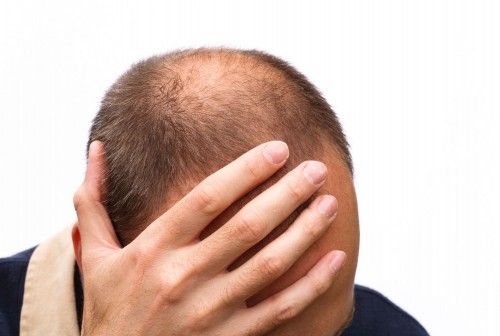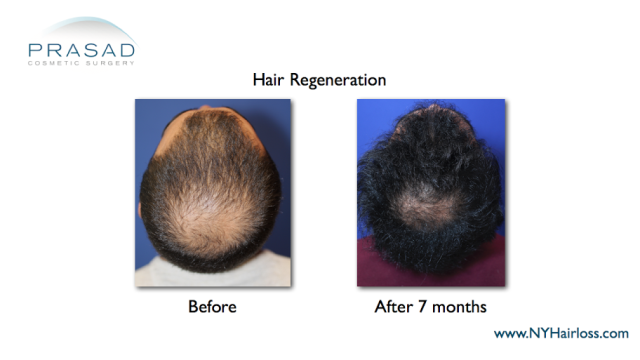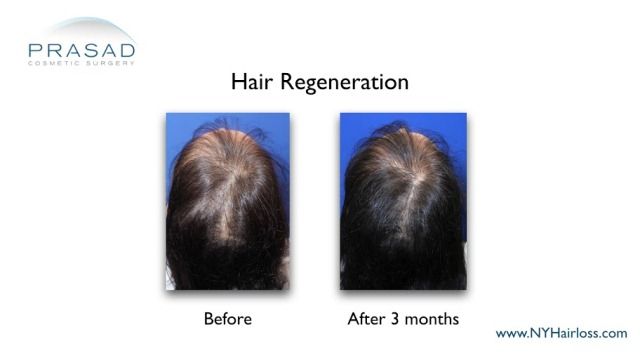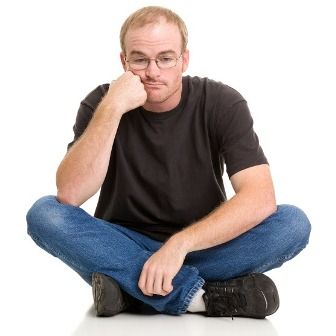The Psychological Effects of Balding
Hair loss can result in a variety of psychological and emotional issues associated with how we perceive ourselves, and how we think we believe other people perceive us. Many people who experience progressive hair loss are able to accept it, but for others, hair loss can have a devastating impact resulting in depression and anxiety.
It is important to understand that the emotional distress occurring with losing one’s hair is legitimate and should be addressed and not be brushed aside. To gain a better understanding of how hair loss affects people, here are a few of the psychological and emotional effects associated with balding and hair loss:
Male pattern hair loss can have a devastating effect on one’s state of mind.
Losing confidence in one’s appearance
Hair loss certainly has an effect on the way people look—the loss of the hairline, for example results in a more aged appearance. This dramatically affects the way people see themselves and often contributes to them losing confidence.
Women, in particular, have been known to have a more difficult time adjusting to hair loss. A study conducted by the Journal of the American Academy of Dermatology in 1992 showed that women suffered more emotionally and mentally, and were more likely to develop a negative body image due to hair loss when compared to men who were dealing with the same issue. On the other hand, almost 75% of men feel less confident about themselves with the onset of hair loss, while 60% of men with hair loss say that they have been ridiculed for their baldness at some point in their lives.

Male pattern hair loss has a profound effect on confidence, especially when it occurs early in the teens to 30s where the majority of contemporaries have a thick head of hair.
In terms of dating and relationships, hair loss can have a profound effect on how we perceive ourselves, and how we think we are perceived by others. This is especially true for younger people who are experiencing early hair loss. Some may feel that hair loss signifies the end of youth and desirability, while others feel like they have become less attractive to their partners. As a result, self-esteem takes a hit.
Because our hair is such a prominent feature, it can affect the way we are perceived and how we perform in the workplace. For example, hair loss can have a profound effect on someone who works in front of the camera, or someone who is constantly in the public eye. Studies have shown that some employers are unfortunately swayed against hiring people who are balding or balding, because they are perceived as being older and is therefore disadvantageous to their company. According to certain surveys, about 63% of women claim to have career-related problems because of hair loss.
Depression and other problems
As mentioned before, some people are able to their hair loss; however, there are others who encounter more difficulty dealing with it and even enter into depression in connection to the chronic stress of losing hair. Research and surveys show that people experience hair loss often feel as though they are losing control over their lives. They despair that their hair loss is irreversible, and have high levels of anxiety. In addition, people who already suffer from disorders such as obsessive compulsive disorder and body dysmorphic disorder are further aggravated by the onset of hair loss.
It is important to remember that while hair loss can be distressing, it can be treated, especially with today’s advancements in hair loss treatment. Hair loss medication such as finasteride (for men only) and minoxidil (for men and women) are available, but do require continuous use. These drugs also have side effects. The Hair Regeneration treatment can thicken thinning hair and stop further loss (up to 5 years based on current clinical data) with a single treatment. Surgical hair transplantation can be considered for people with more severe hair loss cases, and the limitation of continued hair thinning after a transplant can be addressed with concurrent treatment with Hair Regeneration. The bottom line is, there are surgical and non-surgical hair restoration treatments that can help restore your confidence in your hair and yourself.

Male pattern hair loss can be stopped by thickening hair that is actively thinning through the Hair Regeneration system. The onetime Hair Regeneration treatment works in almost 100% of male patients.

Female pattern hair loss treated non-surgically with the Hair Regeneration system. The onetime Hair Regeneration treatment has shown visible results in over 80% of female patients.

